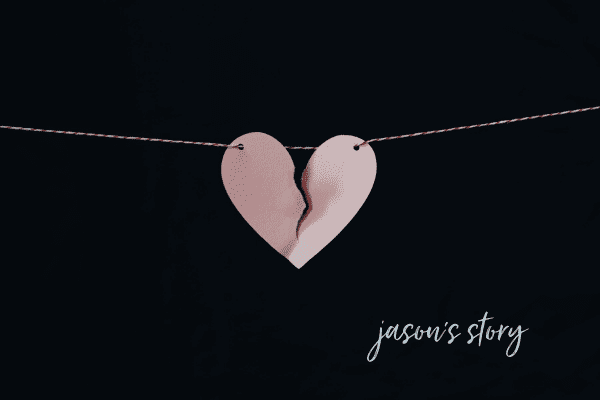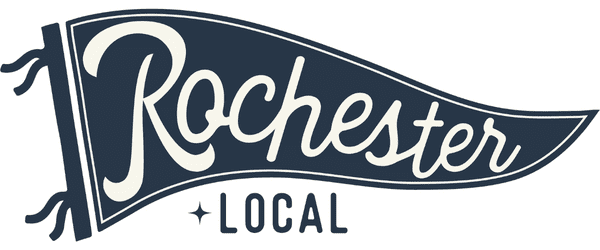 In the last couple of years, I have had the opportunity to hear from others about their Postpartum Depression (PPD) journeys and how important it is to shed light on this topic. I shared my story with PPD (read it here), and now am sharing my journey from my husband Jason’s perspective. I thought it would be valuable to interview him, to hear in his words the partner’s side of this illness, and what his experience was like during this time. Together, we want to work to raise awareness of this serious condition, and encourage others to seek help.
In the last couple of years, I have had the opportunity to hear from others about their Postpartum Depression (PPD) journeys and how important it is to shed light on this topic. I shared my story with PPD (read it here), and now am sharing my journey from my husband Jason’s perspective. I thought it would be valuable to interview him, to hear in his words the partner’s side of this illness, and what his experience was like during this time. Together, we want to work to raise awareness of this serious condition, and encourage others to seek help.
What were you expecting parenthood to be like?
I wasn’t expecting anything specific, and went into with an open mind. I was expecting there be some hormonal shifts, and for it to be hard. I had never changed a diaper, and I was worried that I wasn’t going to do anything right. I was sure I was doing everything wrong. No one prepares you for a full onesie-blowout at 3 in the morning! Having a baby is really hard! Our baby had colic, which made things difficult. She also had to be in a harness for hip dysplasia, which was difficult too.
When I started to experience Postpartum Depression, how did you know something was wrong?
It seemed like you were always “out of it.” It seemed like you were tired all the time, which is understandable after having a baby. But after a month or two, I didn’t expect it to still be that bad. You were emotionally disconnected from everything and everybody.
What were some of the signs you noticed?
It was like you didn’t want to take care of yourself at all. It was our first kid and we didn’t know what life would be like after having a kid. You don’t know how people are going to act or what they are going to do. The doctors always say “this is normal,” but you don’t know if it truly is normal or not. The baby blues are normal, but when it doesn’t go away after a couple weeks and you have the same or worsening symptoms, that is not normal. Like 3+ weeks of there being nothing that would make you happy– that’s not normal. During that time you weren’t wanting or were denying help because people kept saying that this is just normal. You were crying a lot. And then you started saying life would be better without you here and that you felt like you were a burden.
When did you know that I needed help?
I think it was when you said that you were going to pack your stuff. You said that you had everything set for Gwen and me, and that I didn’t need to worry. You said that you didn’t want us to worry about you and your postpartum depression, or be a burden anymore. It was Halloween, which is your favorite holiday, and no part of you was happy or could enjoy any of it.
How did you get me help?
Denial of help was hard. You knew deep down you needed help, but you thought that it wouldn’t help. That was the big thing. It took finding the right person (therapist) that you trusted. We maybe wouldn’t find the right person right away, but even if it took some time, we needed to stick to it to find that person. I knew this was the case. Even though you had tried before to get help, we needed to try again. Honestly, I googled “depression psychiatrist” in our town. I started emailing people and your therapist was the first one to respond.
How did you see me starting to get better?
You had a lot more interest in things. You started to want to try to do things that would normally make you happy, that you didn’t have interest in before. You acknowledged you had a problem and that you wanted to fix it. You stopped saying “Life would be easier without me,” or “I am a burden to you and Gwen.”
What was the hardest part for you?
Knowing that you didn’t want to be here anymore, and that it could happen at any time and there was nothing I could do about it. I still think about this.
What are the signs you want other partners to look out for?
-Things that normally brought you happiness (reading, girls’ night, bike ride), you no longer had any interest in at all.
-Not taking care of yourself (not wanting to shower, do your hair/makeup). Which I understand as the first couple weeks it is hard, but once you started neglecting yourself it became more than not having time to shower.
-Crying a lot
What do you recommend to partners?
-Be aware of what is considered “normal” post pregnancy, and what things are not normal. Don’t be afraid to talk to someone about it if you are concerned it might be depression, and not be “normal.” If you really think it is a problem and your partner doesn’t, seek out another opinion.
-Care about your partner as much as you care about the baby. A lot of people give attention to the baby, but forget about the mama. Make a candlelight dinner after the baby goes to bed. Get her chocolate. Let her know she is important too.
-There is always help out there, you just need to look for it, and ask. Don’t be afraid to talk to your friends and family about this stuff. Your parents have a good idea of how it is done and can help you. Listen to your friends, too. If your friends are having babies, let them know you are willing to talk. There are no weird or stupid questions in parenthood!
If you or someone you know is struggling, PLEASE ask for help. You are loved, and needed. Do not let depression tell you your life is not worth living.
Suicide Prevention Hotline: 1-800-273-TALK (8255), text to 741741, or Online Chat. Someone is available 24/7.
The content on Rochester Mom is not intended to be a substitute for professional medical advice, diagnosis, or treatment. Always seek the advice of your physician or other qualified health provider with any questions you may have regarding a medical condition. Never disregard professional medical advice or delay in seeking it because of something you have read on this website.





